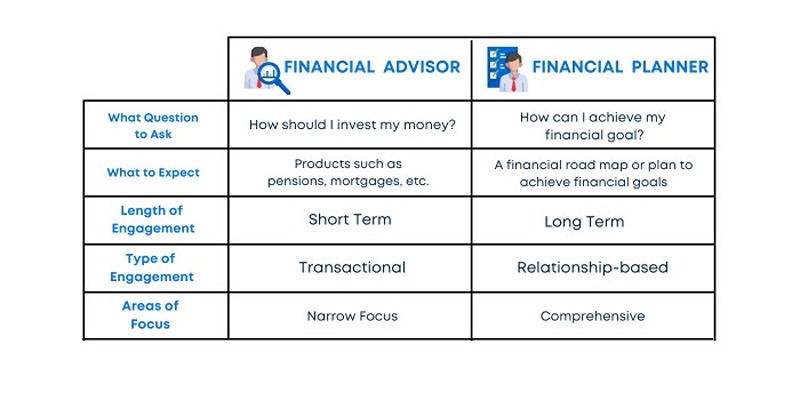How to Check Points on your Driving License?
Driving is a privilege that comes with responsibility. Drivers need to understand the consequences of their actions on the road, including how Driving License Points work. Driving License Points are a system state governments use to track and penalize drivers for traffic violations. Each state has its point system, but the concept is generally the same. When a driver is convicted of a traffic violation, they are assigned a certain number of points based on the severity of the offense. These points are added to the driver's record and can lead to fines, license suspension, and even revocation.
What Do You Need to Know About Points on Driving License?

Following are the factors to take into account regarding Points on Driving License:
Different Offenses Carry Different Point Values
Driver's license points can vary by the seriousness of the violation. The more serious the violation, the more points will be assigned to your license. For example, a minor traffic violation like a speeding ticket may only result in one or two points. In contrast, a more serious offense like a DUI can result in several points or even a license suspension.
Each state has its own system for assigning points on Driving Licenses. In some states, points remain on your license for a specific amount of time, while in others, they remain on your license permanently.
Points Can Result in License Suspension or Revocation
Accumulating too many points on your driving license can lead to license suspension or revocation. The number of points needed for suspension or revocation varies by state. For example, in California, accumulating four or more points in 12 months, six or more points in 24 months, or eight or more points in a 36-month period can result in license suspension.
It is important to note that accumulating points is not the only way to have your license suspended. In some cases, a serious traffic violation such as driving under the influence (DUI) can immediately suspend your license.
If your license is suspended, you may be required to pay a fine, complete a driver improvement course, or take other steps to reinstate your license. It is essential to understand your state's specific requirements for license reinstatement and comply with them to regain your driving privileges.
Points May Affect Insurance Rates
Insurance companies often use driving license points to determine their rates. Drivers with more points on their record are considered higher risk and may face higher insurance premiums.
Points Can Stay on Your Record for Years
Points can stay on your driving license for several years, depending on the state and the offense. In some states, points may remain on your record for up to 10 years. It is essential for drivers to understand how long points will remain on their record and to take steps to prevent accumulating points.
You Can Check Your Point Balance
Most states allow drivers to check their point balance online or by contacting the Department of Motor Vehicles. It is important for drivers to regularly check their point balance to ensure they are aware of any points on their record and to take steps to reduce them if necessary.
Defensive Driving Courses Can Reduce Points
Many states offer defensive driving courses that can be taken to reduce points on a driving license. Completing these courses can also help drivers become better and safer drivers on the road.
Traffic Violations Can Lead to Criminal Charges
In addition to points on a driving license, traffic violations can sometimes lead to criminal charges. For example, driving under the influence of drugs or alcohol can result in DUI charges, which can have severe legal and financial consequences.
How to Check Points on Your Driving License?
Checking your driving license points is relatively simple. In most states, you can request a copy of your driving record from the Department of Motor Vehicles (DMV) or the state agency that oversees driver's licenses. Your driving record will show all the offenses you have committed and the number of points assigned to each violation.
To request a copy of your driving record, you must provide your driver's license number, name, and address. A fee may be associated with obtaining your driving record, but it is usually nominal.
How to Lower Your Car Insurance Rates?

If you have accumulated driving license points, you may be paying higher car insurance rates than you would otherwise. Fortunately, there are several things you can do to lower your car insurance rates:
Take a Defensive Driving Course
Many insurance companies offer discounts to drivers who complete defensive driving courses. These courses teach you how to be a safer driver and can help you avoid future driving offenses.
Shop Around Different Insurance Providers
Car insurance rates vary widely from one company to another. By shopping around and comparing rates, you can find a company that offers lower rates than your current provider.
Increase Your Deductible
Your deductible is paid out of pocket before your insurance coverage kicks in. By increasing your deductible, you can lower your monthly premium.
Reduce Your Coverage
If you have an older car or a car not worth much, you can reduce your coverage and save money on your insurance premiums.
Improve Your Credit Score
Your credit score can affect your car insurance rates. By improving your credit score, you can qualify for lower rates.
Final Takeaway
Driving license points can have a significant impact on your driving record and your car insurance rates. It is important to be aware of the offenses that can result in points and to take steps to reduce your points if necessary. By checking your driving record regularly and becoming a safer driver, you can avoid accumulating points and keep your car insurance rates low. Remember, safe driving keeps you and others on the road safe and can also save you money in the long run.
On this page
What Do You Need to Know About Points on Driving License? Different Offenses Carry Different Point Values Points Can Result in License Suspension or Revocation Points May Affect Insurance Rates Points Can Stay on Your Record for Years You Can Check Your Point Balance Defensive Driving Courses Can Reduce Points Traffic Violations Can Lead to Criminal Charges How to Check Points on Your Driving License? How to Lower Your Car Insurance Rates? Take a Defensive Driving Course Shop Around Different Insurance Providers Increase Your Deductible Reduce Your Coverage Improve Your Credit Score Final Takeaway
By Rick Novak : Jan 28, 2023
What Is a No-Load Fund?
No-load funds are an excellent option for investors looking to diversify their portfolios without paying hefty trading commissions. They offer low costs, a wide range of potential returns and the ability to manage risk and maximize returns through proper research and selection.
Read More
3896

By Kelly Walker : Apr 19, 2023
How to Check Points on your Driving License?
This article will discuss the basics of driver's license points and what you need to know to avoid accumulating points on your driving license.
Read More
2319

By Kelly Walker : Mar 30, 2023
How to Read the Letter Offering You Financial Aid
A student's financial aid eligibility and the amount of aid they will receive are outlined in an award letter. The document details the terms and conditions of several financial aid forms, such as grants, loans, work-study, and scholarships. Making educated decisions about paying for college and avoiding unexpected fees or debt requires a thorough understanding of the information provided in the award letter.
Read More
2186

By Rick Novak : Apr 26, 2023
How Are Fees for ETFs Deducted?
Due to their cheap fees, diversification, and convenience of trading, exchange-traded funds (ETFs) have gained popularity among investors. Many shareholders, however, wonder how ETF fees are removed from their investments.
Read More
2865

By Kelly Walker : Jun 28, 2023
Best Students Credit Cards Of 2023: A Detailed Guide
Get the most out of your college experience by choosing the best student credit cards. We compare and review the top picks so you can make an informed decision.
Read More
686

By Rick Novak : Mar 29, 2023
Top Agriculture Stocks 2023
The top agriculture stocks for investors to consider focus on companies with a strong market position, innovative products, and a commitment to sustainability. The ten companies highlighted in the article include Archer-Daniels-Midland Company, Deere and Company, Nutrien Ltd., Bunge Limited, Corteva, Inc., Agrium Inc., Monsanto Company, Syngenta AG, Mosaic Company, and Zoetis Inc. Investing in these companies can provide exposure to the agriculture sector and the potential for long-term growth.
Read More
4269

By Rick Novak : Feb 22, 2023
Stocks then and now
Today, investing in the stock market and having an online brokerage account or a retirement plan is not uncommon. However, markets were less liquid, and stock trading was less accessible in the past. In this article, we take a quick look at the stock market conditions from the 1950s to the 1970s from an investors' perspective.
Read More
14382

By Kelly Walker : Mar 26, 2023
What Are Best Endeavors?
Do you have big dreams and goals but need to know how to get started? Read our article to learn about the best endeavors, their meaning, and the benefits they bring so you can start progressing toward your success story.
Read More
15291

By Kelly Walker : Mar 30, 2023
Financial Planner vs. Financial Advisor: What’s the Difference?
Have you ever wondered about the difference between a financial planner and a financial advisor? Find out here! Learn which type of professional to turn to for help so that you can make informed decisions about your finances.
Read More
11755

By Rick Novak : Feb 04, 2023
Short Tax Year: How To Save Money In The Short Term?
A fiscal year that concludes before December 31 is considered a short tax year. Taxpayers may save money in the long run if the tax year is shortened, even though they may have to pay more taxes at certain points.
Read More
18706

By Kelly Walker : Mar 29, 2023
Review Of The Hilton Honors American Express Card 2023
The Hilton Honors American Express Card is a co-branded credit card that allows cardholders to earn rewards and benefits for their stays at Hilton hotels. In this article, we will cover the various benefits and features of the card, the Hilton Honors Rewards program, how to use the card to maximize rewards, and how it compares to other hotel and travel rewards credit cards.
Read More
2928

By Aldrich Acheson : Sep 05, 2024
Picking the Best Bank for You: A Practical Approach to Making the Right Choice
How to choose the best bank for your needs in 2024 by evaluating key factors like fees, customer service, digital tools, and more. Make informed banking choices
Read More
19511